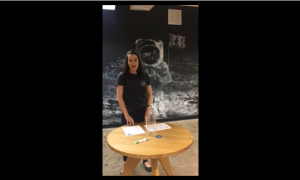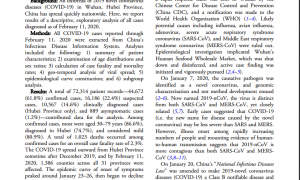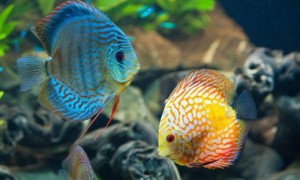1. Good luck! Best of luck! 祝你好运
我们最常听到「Good luck! 」。如果朋友跟你说:「I am taking the TOEIC test tomorrow. 」,你就可以回答他「Good luck! 」,但如果觉得「Good luck! 」太老套,可以回答「I wish you luck!」或「Best of luck! 」,也可再补上一句「Let me know how it goes. 」 让对方知道你是诚恳地关心他。
然而,在某些语境中,「Good luck! 」有挖苦的(sarcastic)意思,表示「某事情难以达成」,说话者的语气也会有嘲讽的感觉,好像在跟对方说「好啊!你就试试看」或 「这么做也没用啦」,例如:
Alice: I am going to talk to my boyfriend out of leaving the job.
Ben: Good luck with that! He’s as stubborn as a mule.
爱丽丝:我要说服我的男朋友不要离职。
班:祝你好运!他倔强得跟头驴子一样。
2. (It’s a) good thing/job that 幸运的是; 还好 (=It is lucky that…)
It’s a good thing 后面加上一个that所引导的子句,是「幸好」、「还好」的意思, 强调因为某事的发生,或做了某件事而避开了麻烦或某件不好的事。
例如:
Good thing I came back to Taiwan on Monday— almost all flights were cancelled on Tuesday due to Typhoon Megi.
还好我没有在周一到台湾,几乎所有的周二航班都因为梅姬台风而被取消了。
这句话也可同义改写为:
Fortunately/Luckily , we arrived in Taiwan on Monday. Almost all flights were cancelled on Tuesday due to Typhoon Megi.
幸运的是,我们在周一到台湾。几乎所有的周二航班都因为梅姬台风而被取消了。
此外,句型中的thing也可以替换作job:
It’s a good job I remembered to bring an umbrella. Otherwise I will get soaking wet in the pouring rain.
幸好我有带雨伞,否则在这滂沱大雨中我一定会淋得全身湿透。

3. (It’s) just as well… 幸好;正好;最好
(It’s) just as well… 这个句型可用来表达某个状况或结果是件好事,即使并未事先这计画或预料到(如例1、例2),另外可用于「提议」,传达「最好该怎么做」之意。
例1: It’s just as well that I brought my umbrella because it looks like it’s going to pour at any time.
还好我今天有带伞,因为看起来好像随时会下大雨。
例2:The teacher gave us a pop quiz today. Just as well I was studying last night.
老师今天要我们随堂考。正好我昨天晚上有念书。
例3:It’s would be as well to check whether you have the keys with you before you go out.
最好再出门前确认是否有带到钥匙。
4. You’re in luck! / someone’s lucky day. vs. You lucky thing.
be in luck就是「幸运」,代表如愿以偿,其相反是be out of luck,表示运气不好。
例句:
Customer: Do you have this pair of shoes in size 39?
Clerk: You’re in luck! There’s only one pair left in the back.
顾客:请问你们这双鞋还有39号尺码的吗?
店员:你真幸运!仓库里只剩下一双了。
而someone’s lucky day 则代表「某人的幸运日」,例如:
Eliot: Wow, I just won NT$1000 in the receipt lottery!
Jenny: Today must be your lucky day .
在这则对话中,艾略特说他发票中了1000元,珍妮回答「今天一定是你的幸运日」。但如果好朋友中了发票你没中的话,难免觉得有点羡慕或小忌妒,那么可以回答:「You lucky thing.」或「Aren’t you lucky! 」,开玩笑地跟对方说:「你这幸运的家伙。」当然,要够亲近的朋友才能这样回答,否则会有点不礼貌,不太熟的朋友也可以跟他说「You’re so lucky! 」 「或 「How lucky for you!」(你好幸运!)。
5. As luck would have it… 幸运的是; 不幸的是
As luck would have it这个子句有双面意涵,这里的luck(运气)实际上是中性的(neutral) ,As luck would have it其实比较强调「碰巧」的意思,根据上下文(context) ,既可表示「走运「也可指 「倒楣」,试比较下面两句话:
As luck would have it , no one was in the building when the bomb exploded.
幸运的是,炸弹引爆的时候没有人在那栋建筑物里面。
As luck would have it , we had a flat tire.
倒楣的是,车子爆胎了。
6. a stroke of (good) luck 突然发生的好运、好事
stroke这个字可以表示 「 突然发生的事 」,如a stroke of lightening(一道闪电)。 a stroke of luck 通常指 「 完全没料到会发生这么幸运的事情 」,常见用法如:
I walked in the store and asked for an iPhone 7. By a stroke of luck , the clerk told me they had a 256GB one!
Louise: 我走进店里问店员有没有iPhone 7,碰巧幸运地,店员竟然跟我说他们有一台256GB的!
7. Better luck next time. 下次会更好运的!
这是一句鼓励的话,当遇到身边的人未能如愿以偿的时候,可以用这句话激励他。
例: I’m sorry to hear that you failed your driving test . Better luck next time !
很遗憾听到你没有通过驾照考试。下次会更好运的!







